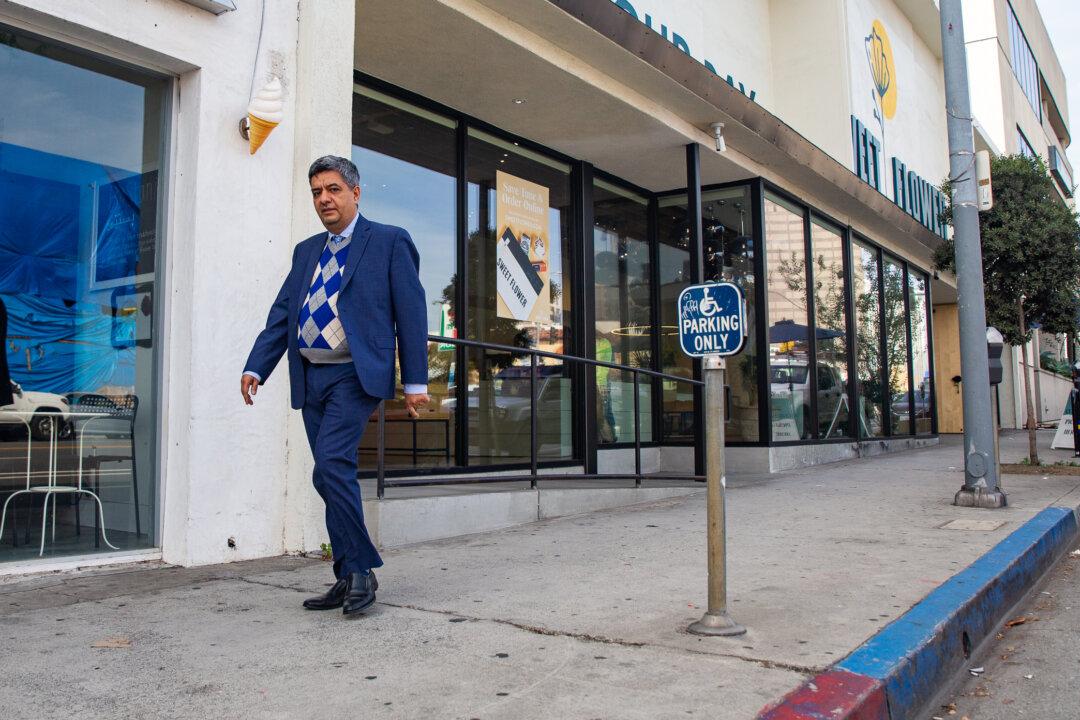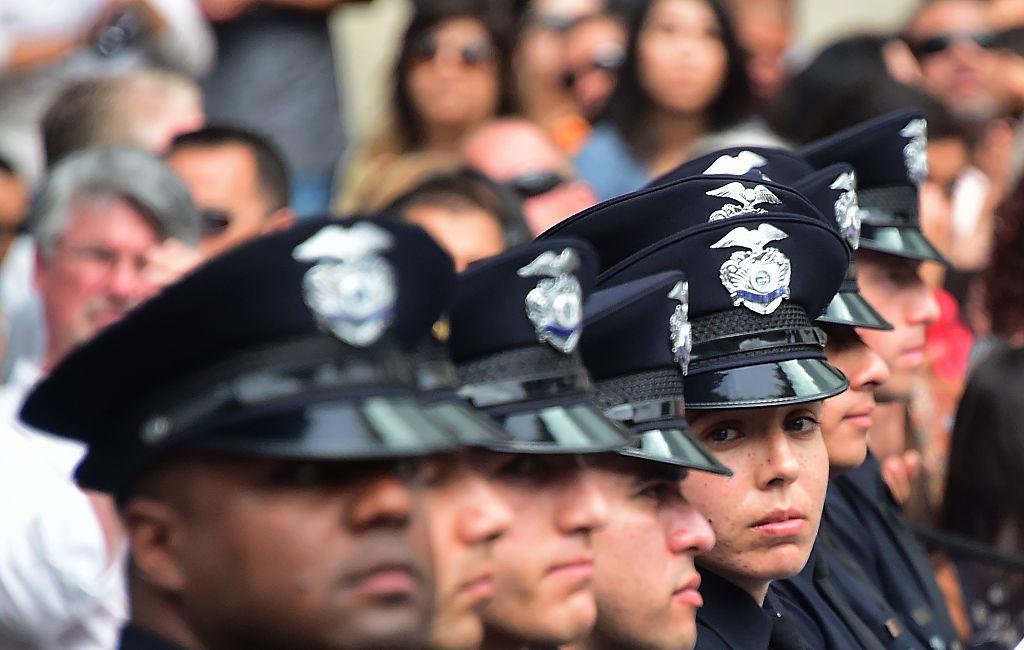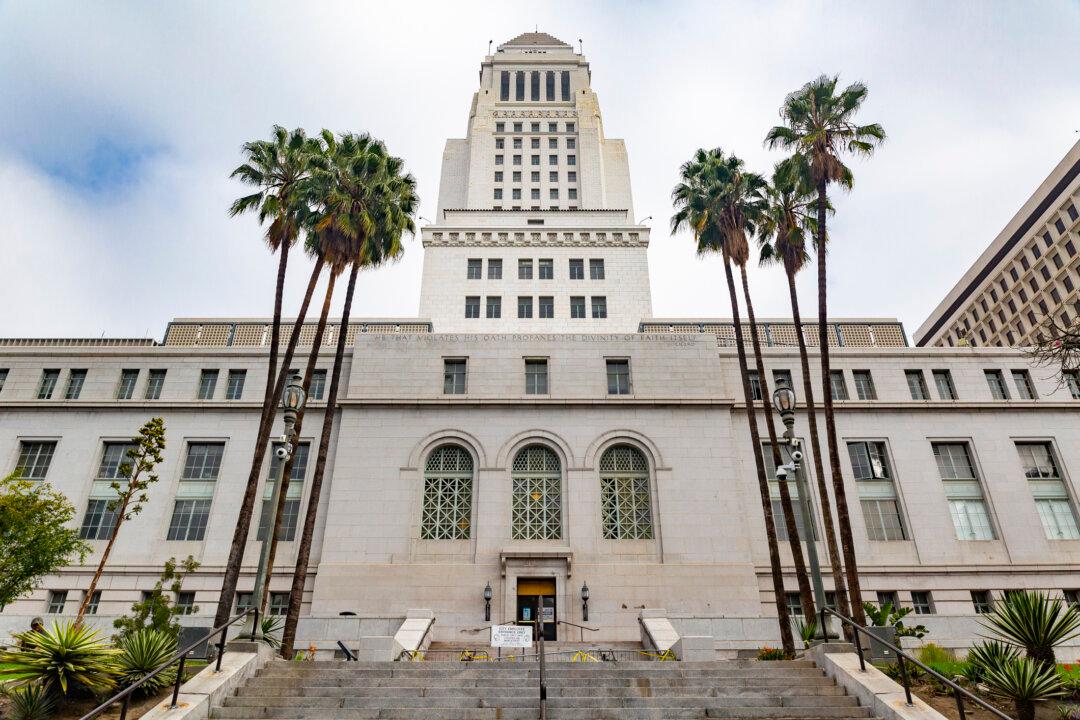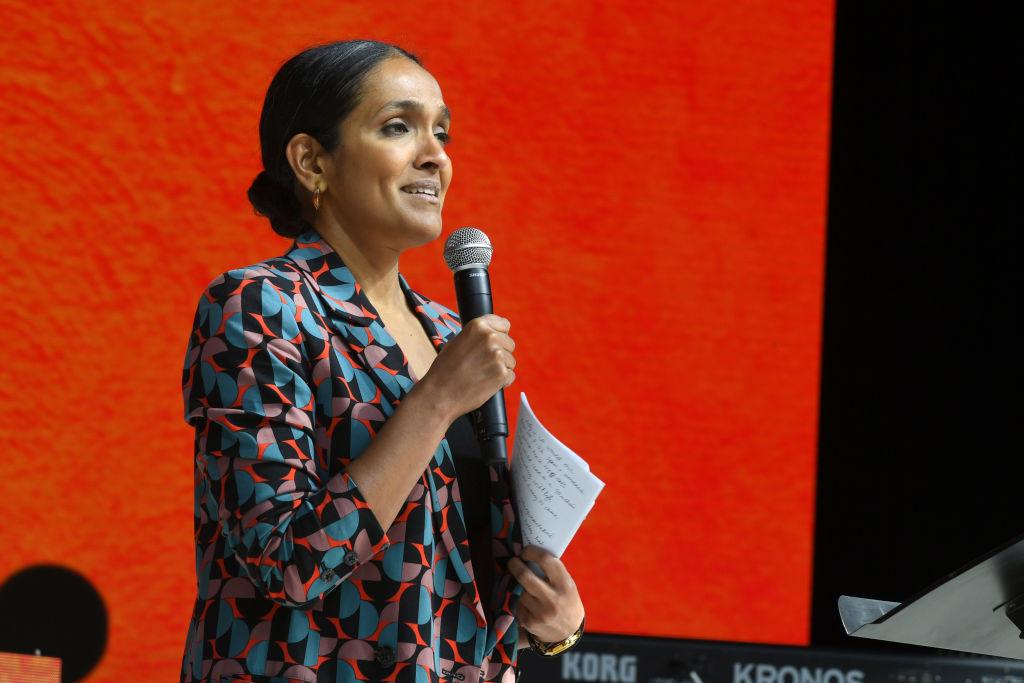The Persian Gulf café in Westwood was a recent target of vandalism after the owner, Roozbeh Farahanipour, set up a memorial in the restaurant honoring women who have been killed in Iran’s protests.
According to Farahanipour, while he was giving public comment Oct. 18 to the Los Angeles County Board of Supervisors supporting its advocacy for women in Iran, he learned the door to his café had been vandalized. He told The Epoch Times he f ound out when his wife, who also works at the café, informed him through a text message.





